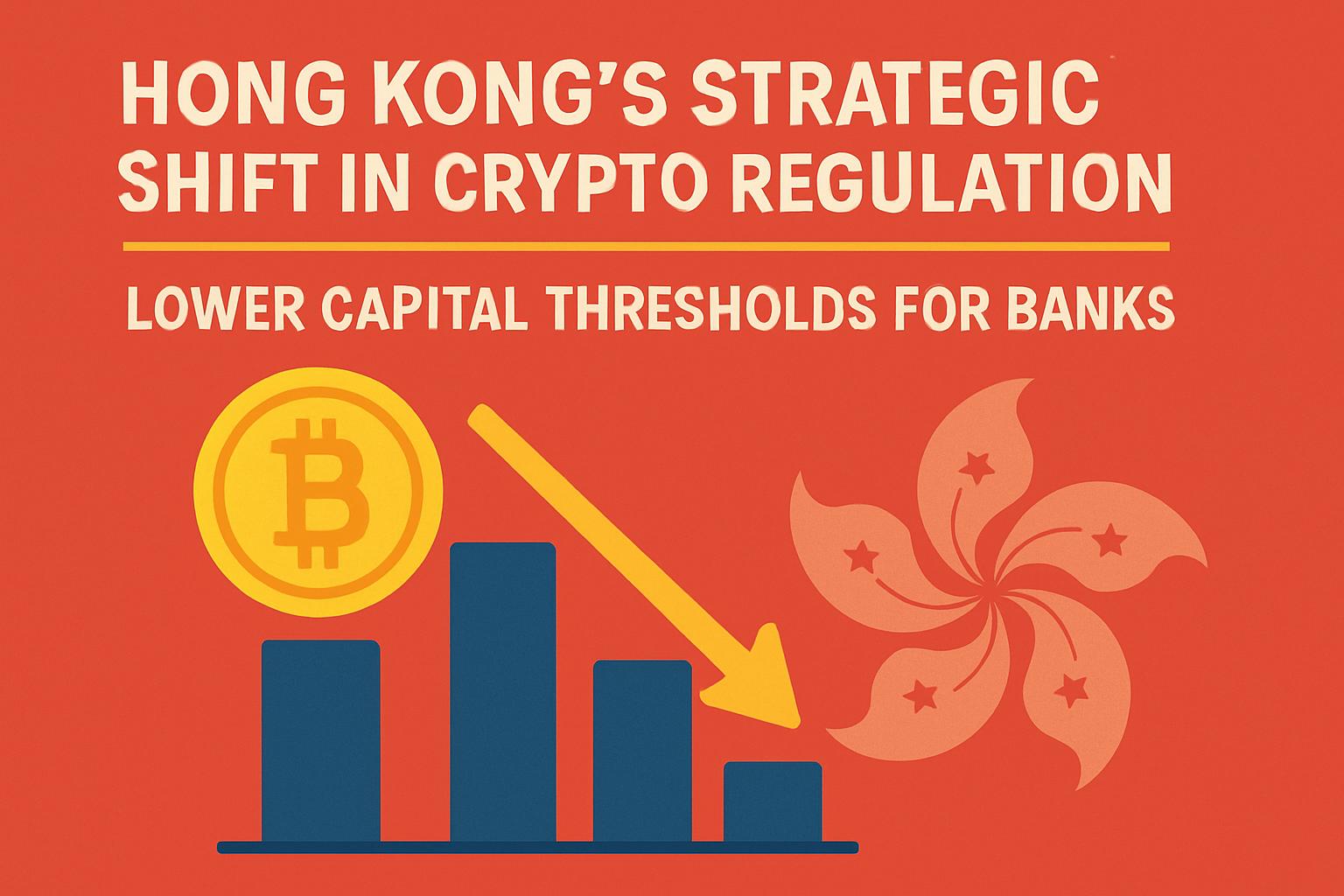The Hong Kong Monetary Authority (HKMA) has taken a noteworthy step towards integrating cryptocurrencies more seamlessly into the financial ecosystem by proposing a new regulatory framework. As per the draft released to the banking sector, this move is set to come into effect in early 2026. The regulations promise relaxed capital requirements for banks holding licensed crypto assets, aligning with international standards set by the Basel Committee on Banking Supervision (BCBS). At the core is a focus on crypto assets operating on permissionless blockchains, offering a notable shift in the region’s crypto policy.
Unlocking Lower Capital Reserves for Crypto Assets
This regulatory draft, known as CRP-1, carves out a path for public blockchain-based crypto assets that operate under robust risk control mechanisms. This initiative potentially reduces the capital reserve obligations for banks, allowing them to hold such assets with a lower financial burden. This step is poised to provide financial institutions with increased operational room and reduced capital costs, enhancing their ability to manage crypto asset portfolios with greater flexibility and efficiency.
Implementation and Global Regulatory Harmony by 2026
Scheduled for implementation in early 2026, this draft aligns closely with BCBS global capital norms, ensuring Hong Kong’s financial framework maintains international congruence. The HKMA plans to further refine classifications and risk assessment methods for crypto assets, enabling banks to adjust their holdings per their risk management capabilities while adhering to these international standards. This harmonization is likely to support banks in meeting global compliance benchmarks effectively.
Broader Crypto Compliance and Industry Evolution
In recent years, Hong Kong has been proactively building a clear regulatory path for the crypto sector, including robust measures for cryptocurrency exchanges and stablecoin issuers. This August, the Hong Kong Securities and Futures Commission (SFC) mandated enhanced custodial and risk protection measures for licensed exchanges. Additionally, stringent standards for crypto asset custody were introduced, prohibiting the use of smart contracts for cold wallets to ensure asset security.
Contrasting with China’s ongoing restrictions on crypto activities, Hong Kong’s approach stands out as decidedly more open and progressive. This regulatory advancement reflects a broader strategy to position Hong Kong as a leading hub for crypto innovation and compliance. Major banking entities like HSBC and the Industrial and Commercial Bank of China are notably moving to capture stablecoin licenses in Hong Kong, with Standard Chartered potentially leading approvals.

![[News] Bitcoin at a Turning Point? 10x Research Signals a Bullish Macro Shift Ahead](https://cryptoexplores.com/wp-content/uploads/2025/06/new20250616.jpg)
![[News] Binance Lists $HOME, the Gas-Free, Bridge-Free All-in-One DeFi App](https://cryptoexplores.com/wp-content/uploads/2025/06/news20250617.jpg)